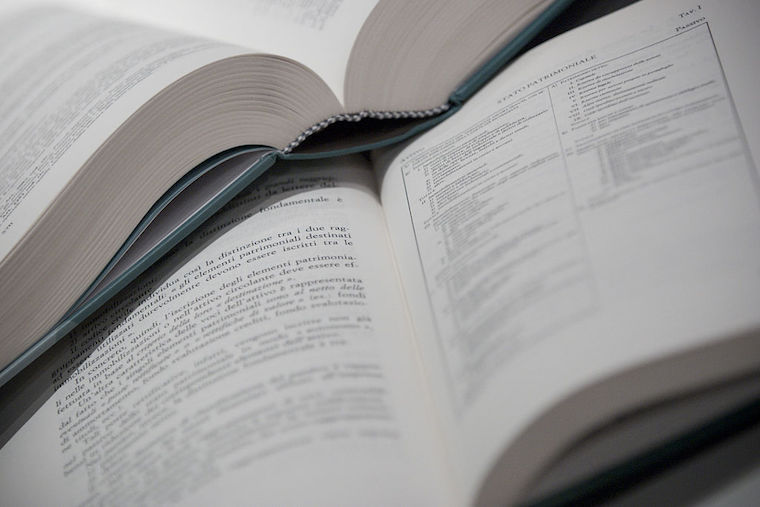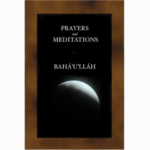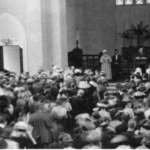
Bahá’u’lláh as Law Reformer
 Bahá’u’lláh’s teachings, like the teachings of all prophets, arise in a particular time and place in history. The language used is conditioned by the language which that time and place can hear. Jesus is believed to have spoken Aramaic (a common language of his time and place). His teachings speak to the realities of the people around him – whose daily lives were mediated through Judaic custom, law and teachings. Jesus necessarily spoke in a language connected with those realities — for otherwise it would have been impossible for the people to understand him at all. Nevertheless, we see that although the symbols used are particular to time and place — the principles of Jesus’ teachings became universal — laying foundations for great civilizations entirely unimaginable to the people to whom he spoke.
Bahá’u’lláh’s teachings, like the teachings of all prophets, arise in a particular time and place in history. The language used is conditioned by the language which that time and place can hear. Jesus is believed to have spoken Aramaic (a common language of his time and place). His teachings speak to the realities of the people around him – whose daily lives were mediated through Judaic custom, law and teachings. Jesus necessarily spoke in a language connected with those realities — for otherwise it would have been impossible for the people to understand him at all. Nevertheless, we see that although the symbols used are particular to time and place — the principles of Jesus’ teachings became universal — laying foundations for great civilizations entirely unimaginable to the people to whom he spoke.
Jesus is believed to have spoken Aramaic (a common language of his time and place). His teachings speak to the realities of the people around him – whose daily lives were mediated through Judaic custom, law and teachings. Jesus necessarily spoke in a language connected with those realities — for otherwise it would have been impossible for the people to understand him at all. Nevertheless, we see that although the symbols used are particular to time and place — the principles of Jesus’ teachings became universal — laying foundations for great civilizations entirely unimaginable to the people to whom he spoke.
The same is true of Bahá’u’lláh. He spoke the Arabic and Farsi of his time and place — and his laws and teachings are unfolded in the context of the immediate culture, history and religious traditions of the people to whom he spoke. As Jesus’ early followers could not have imagined what was to come, we also will struggle to see the future. As quoted in the article What is Law?, Bahá’u’lláh counsels us to “apprehend” the purpose of his laws. More generally in relation to the interaction of the teachings of the prophets and the world, Bahá’u’lláh writes:
The measure of the revelation of the Prophets of God in this world, however, must differ. … any apparent variation in the intensity of their light is not inherent in the light itself, but should rather be attributed to the varying receptivity of an ever-changing world. Every Prophet Whom the Almighty and Peerless Creator hath purposed to send to the peoples of the earth hath been entrusted with a Message, and charged to act in a manner that would best meet the requirements of the age in which He appeared. God’s purpose in sending His Prophets unto men is twofold. The first is to liberate the children of men from the darkness of ignorance, and guide them to the light of true understanding. The second is to ensure the peace and tranquillity of mankind, and provide all the means by which they can be established.[1]
Moreover, as the prophet’s teaching start a process of transformation, there is much that the people of the prophet’s time will not apprehend. Thus in respect of Muhammad, Baha’u’llah wrote:
Consider that which hath been sent down unto Muḥammad, the Apostle of God. … They that heard Him, …, could apprehend His purpose only to the extent of their station and spiritual capacity. He, in like manner, uncovered the Face of Wisdom in proportion to their ability to sustain the burden of His Message. No sooner had mankind attained the stage of maturity, than the Word revealed to men’s eyes the latent energies with which it had been endowed …[2]
The law reform in which the prophets’ engage, as described here, is an organic process. Another metaphor used to explain it is the daily rhythm of the rising of the sun.
Consider the sun. How feeble its rays the moment it appeareth above the horizon. How gradually its warmth and potency increase as it approacheth its zenith, enabling meanwhile all created things to adapt themselves to the growing intensity of its light. How steadily it declineth until it reacheth its setting point. Were it, all of a sudden, to manifest the energies latent within it, it would, no doubt, cause injury to all created things.…[3]
We see this in the way in which Bahá’u’lláh goes about reforming the human condition. His teachings early in his mission were largely mystical and theological. It was many years before Bahá’u’lláh began to set down specific ordinances. Moreover, he cautions against their premature implementation, even after he has set them down in his book of laws – the Kitab-i-Aqdas. To a Baha’i who had requested a copy of the Kitab-i-Aqdas, Baha’u’llah wrote:
For a number of years petitions reached the Most Holy Presence from various lands begging for the laws of God, but We held back the Pen ere the appointed time had come. … [4]
… one must observe tact and prudence under all conditions, so that nothing might happen that could cause disturbance and dissension or raise clamor among the heedless … One must guide mankind to the ocean of true understanding in a spirit of love and tolerance.[5]
The foregoing gives us some insight into the process of “law reform” in which Bahá’u’lláh was engaged, but still doesn’t give us a sense of what those reforms were. We have however already seen many examples in previous articles. Here are some of them.
- The abolition of all forms of clergy as well as congregational prayer
- The establishment of consultative lay bodies
- The abolition of “ritual uncleanness”
- The provision for “Houses of Worship” open to all humanity and as a focus for worship and service
- The establishment of Baha’i festivals
- A regular gathering of community held ever 19 days to foster human unity
- The abolition of slavery
- The prohibition of violence
- The prohibition of cruelty to animals
- The prohibition of content and conflict
- The prohibition of the destruction of books
- The freedom to dress as one wishes
- Abolition of the prohibition of music
- To associate the followers of all religions and against persecution
- Encouragement of the arts and sciences
These concepts (which are reflected in the synopsis of the Kitab-i-Aqdas prepared by Shoghi Effendi) provide some sense of the scope of the Kitab-i-Aqdas – although still incomplete. Some of them refer to specific social conventions in Bahá’u’lláh’s immediate society. As has been observed previously, in Bahá’u’lláh’s teachings, the past is rarely thrown away, it is re-fashioned and appears in new forms. For example, social mores controlling dress are abolished but replaced with the concept of adornment with human virtues. What was very specific in time and place becomes universalized in a vision of a new way of life.
Selected Sources:
Synopsis and Codification of the Laws and Ordinances of the Kitab-i-Aqdas the Most Holy Book of Bahá’u’lláh
Adib Taherzadeh, Revelation of Bahá’u’lláh, Volume 3, Chapter 13
(This article is the 148th in a series of what I hope will be 200 articles in 200 days for the 200th anniversary of the birth of Bahá’u’lláh. The anniversary is being celebrated around the world on 21 and 22 October 2017, The articles are simply my personal reflections on Bahá’u’lláh’s life and work. Any errors or inadequacies in these articles are solely my responsibility.)







